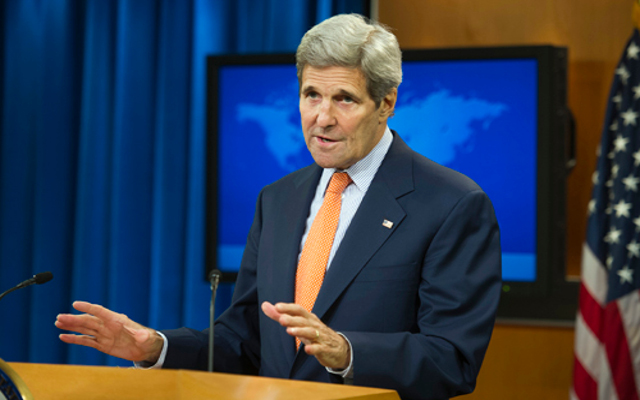On Wednesday, the United States (US) Department of State released the Country Reports on Human Rights Practices for 2015. Americans for Democracy & Human Rights in Bahrain (ADHRB) welcomes these extensive reports detailing the wide range of US human rights concerns in Bahrain and other Gulf Cooperation Council (GCC) member states.
The report begins by detailing the most serious of Bahrain’s human rights problems. These include “citizens’ limited ability to change their government peacefully; lack of due process in the legal system, including arrests without warrants or charges and lengthy pretrial detentions, used especially in cases against opposition members and political or human rights activists; and restrictions on free expression and assembly.”
The Department of State is highly critical of Bahrain’s lack of transparency and repression of civil society, as well as ongoing reports of torture and discrimination. The largest issues detailed in the report relate to errant lack of respect for personal integrity, civil liberties, and international standards on human rights. The report rightly focuses at length on instances of torture, arbitrary arrest and detention, the inability of obtaining a fair trial, and government opposition to free speech, assembly, and academic freedom. Rampant government and societal discrimination, against Shia, women, and migrant workers, among other groups, receives a welcome thorough examination as well.
The report highlights several individual cases which epitomize the struggle for and need of human rights protections. Social and other media remain subject to censorship and government scrutiny. Fadhel Abbas, the secretary general of the al-Wahdawi political society, and Nabeel Rajab, president of the Bahrain Center for Human Rights, were arrested for tweets related to Bahrain’s and Saudi Arabia’s military involvement in Yemen; Ghada Jamsheer was arrested for tweeting about the corruption at a local hospital. Zainab al-Khawaja was also a victim of laws limiting freedom of expression, when she was sentenced to three years in prison and a fine for “pulling a picture of the king off a courtroom wall and tearing it.” Ibrahim Sharif and Sheikh Ali Salman, Wifaq secretary general, were arrested under similar crimes of “promoting political change through forceful means” after delivering speeches calling for government reforms.
In the same year that the Bahraini government carried out these abuses, the United States lifted its arms export restrictions to the kingdom, citing “progress” in addressing areas of human rights concern. Yet, this year’s human rights report appears to show the opposite, clearly demonstrating that the State Department retains significant concern over Bahrain’s human rights record.
“We are glad to see the State Department’s human rights report continue its honest criticism of wide ranging abuses in Bahrain,” said ADHRB Executive Director Husain Abdulla. “We call on the US government will follow this assessment and stop enabling these abuses by reinstating its arms export ban.”
ADHRB was concerned that commitments to human rights protections would be overshadowed during Secretary of State John Kerry’s recent visit to Bahrain by anti-terrorism rhetoric and negotiations. We welcome the efforts surrounding the case of Zainab al-Khawaja; despite the government promising her release, she still remains in government custody.
“Foreign Minister Khalid promised John Kerry that his government would release Zeinab al-Khawaja,” said Abdulla. “The US must hold Bahrain to its human rights commitments to respect both Zeinab’s rights and the rights of all Bahrainis.”
ADHRB looks forward to the United States’ continuing effort to push for human rights protections in Bahrain and the GCC. While raising awareness of the issues at hand is a welcome foundation, true change will only come with reinvigorated efforts to make Bahrain enforce internationally agreed upon standards. With the publishing of this report, the United States acknowledges Bahrain’s problem areas; we can only hope it will use this information to enact positive change.
Click here for a PDF of the statement.
Click here for a PDF of the Bahrain human rights report; here for the Saudi Arabia human rights report; here for the UAE human rights report; here for the Qatar human rights report; here for the Kuwait human rights report; and here for the Oman human rights report.





